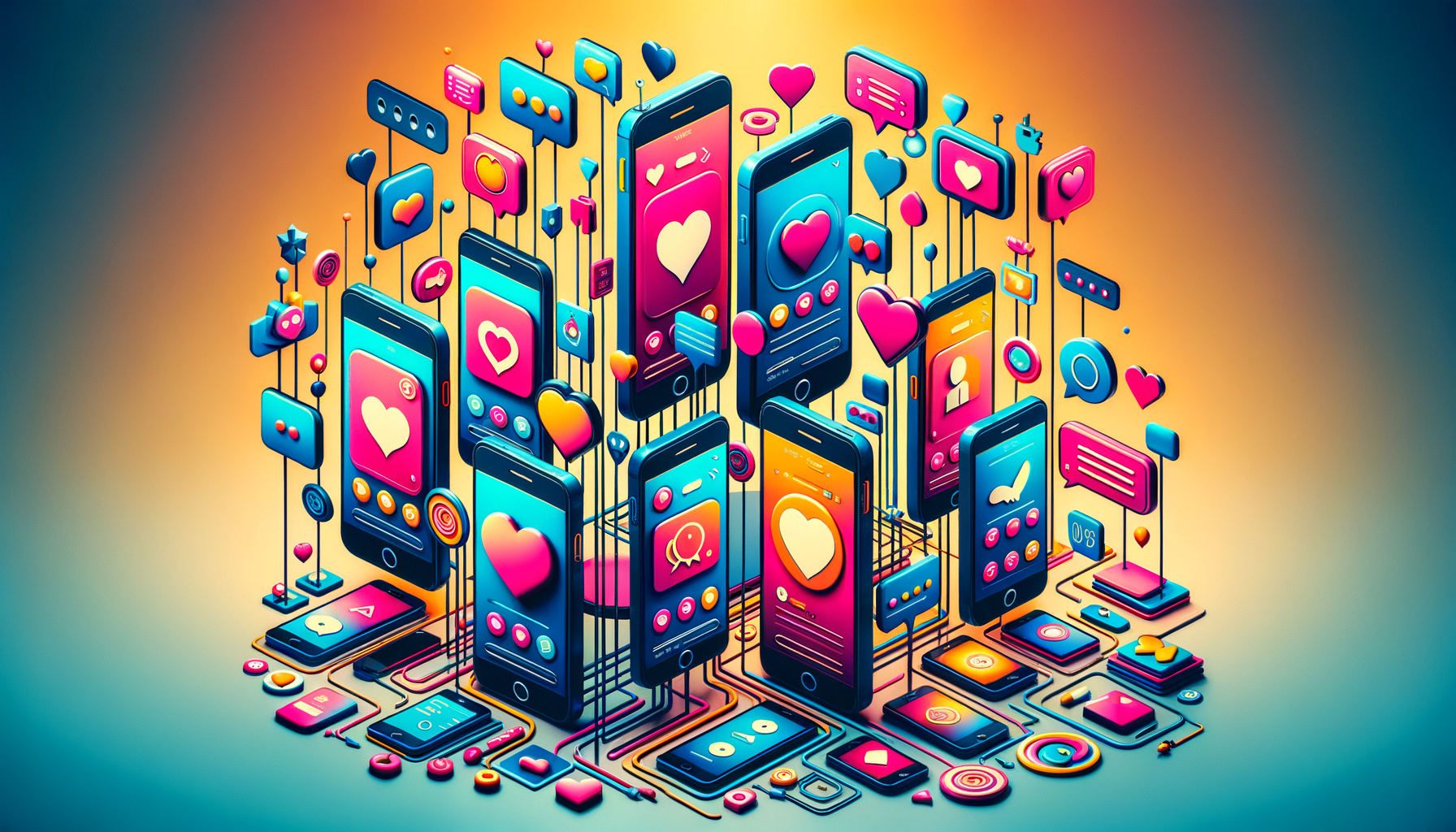Exploring Connections: The Role of Dating Apps
Dating apps provide a platform for individuals to connect and explore potential romantic relationships through profiles, messaging, and various matching algorithms, catering to diverse preferences and interests.

Introduction to Dating Apps
In today’s fast-paced digital world, dating apps have become a significant tool for individuals seeking romantic connections. These platforms offer a convenient and efficient way to meet new people, breaking the barriers of geography and time. The importance of dating apps lies in their ability to cater to diverse preferences, offering a wide range of options for users to explore potential relationships. By leveraging technology, dating apps have revolutionized the way people connect, providing a space where individuals can express their interests and find compatible partners.
The Evolution of Dating Apps
Dating apps have come a long way since their inception, evolving from simple matchmaking services to complex platforms with advanced features. Initially, these apps focused on basic profiles and simple swiping mechanisms. However, as technology advanced, so did the functionalities of dating apps. Today, they incorporate sophisticated algorithms that analyze user behavior, preferences, and interactions to suggest potential matches.
One of the significant advancements in dating apps is the introduction of artificial intelligence (AI) and machine learning. These technologies enable apps to offer personalized experiences by understanding user preferences and predicting compatibility. Additionally, the integration of video profiles and virtual dating features has enhanced the user experience, allowing individuals to connect more authentically.
The evolution of dating apps reflects the changing dynamics of modern relationships, where convenience and compatibility play crucial roles. As these platforms continue to innovate, they are likely to become even more integral to the way people form and maintain romantic connections.
Understanding User Preferences
Dating apps cater to a wide range of user preferences, making them appealing to diverse audiences. Whether someone is looking for a long-term relationship, casual dating, or new friendships, there is likely a platform that suits their needs. Understanding user preferences is crucial for dating apps to provide relevant matches and enhance user satisfaction.
These platforms often use detailed questionnaires and personality assessments to gather insights into user preferences. By analyzing this data, dating apps can offer tailored suggestions, increasing the likelihood of successful matches. Moreover, many apps allow users to filter potential matches based on specific criteria, such as age, location, interests, and values.
The ability to customize preferences empowers users to take control of their dating journey, ensuring they connect with individuals who share similar goals and interests. This personalized approach not only improves the user experience but also increases the chances of forming meaningful connections.
The Impact of Dating Apps on Society
Dating apps have had a profound impact on society, influencing how people perceive and pursue romantic relationships. These platforms have democratized dating, making it accessible to a broader audience and reducing the stigma associated with online dating. By providing a space for individuals to express themselves and connect with others, dating apps have reshaped social norms and expectations.
One of the significant societal impacts of dating apps is the increased acceptance of diverse relationship types. These platforms celebrate individuality and inclusivity, allowing users to explore various forms of relationships without judgment. Additionally, dating apps have facilitated cross-cultural connections, enabling individuals from different backgrounds to meet and form relationships.
While dating apps offer numerous benefits, they also present challenges, such as the potential for superficial interactions and the pressure to present an idealized version of oneself. Despite these challenges, the overall impact of dating apps on society has been largely positive, fostering connections and broadening the scope of modern relationships.
Conclusion: The Future of Dating Apps
As technology continues to advance, the future of dating apps looks promising. These platforms will likely become more sophisticated, offering enhanced features that cater to the evolving needs of users. With the integration of virtual reality and augmented reality, dating apps may provide even more immersive experiences, allowing users to connect in innovative ways.
The ongoing development of AI and machine learning will further refine the matchmaking process, ensuring more accurate and compatible matches. Additionally, dating apps will continue to prioritize user safety and privacy, implementing measures to protect users from potential risks.
In conclusion, dating apps have transformed the landscape of romantic relationships, offering individuals a convenient and effective way to connect. As these platforms evolve, they will continue to play a crucial role in how people form and maintain relationships, adapting to the changing dynamics of society.